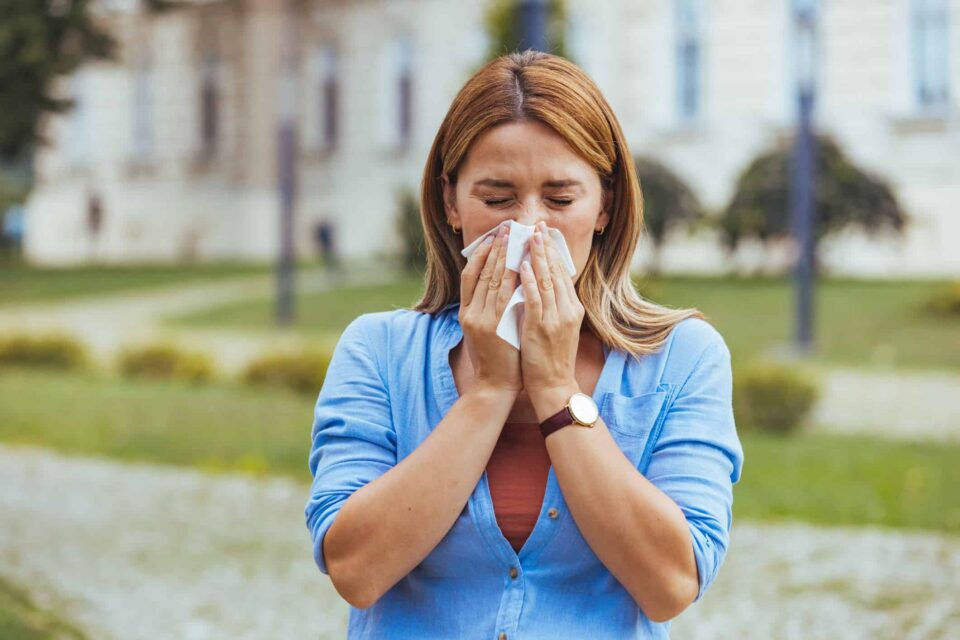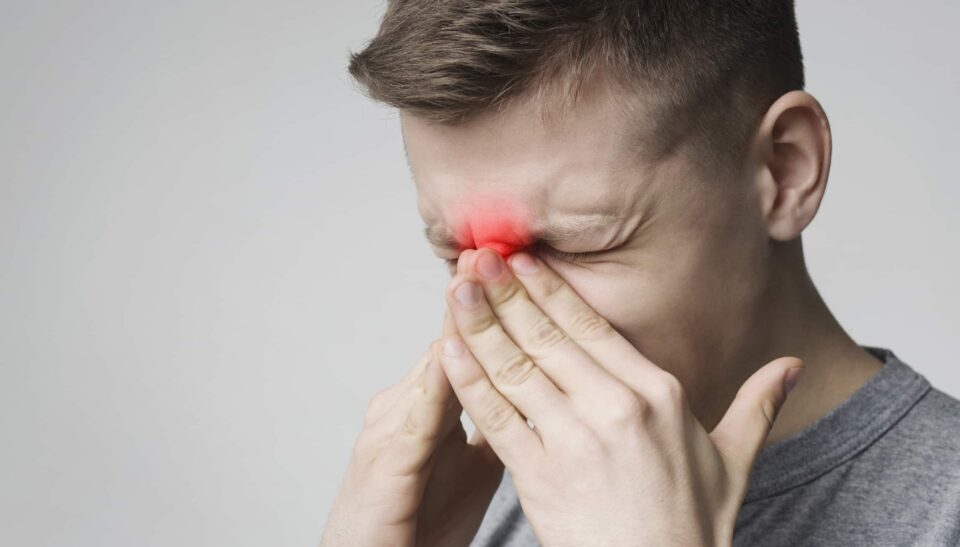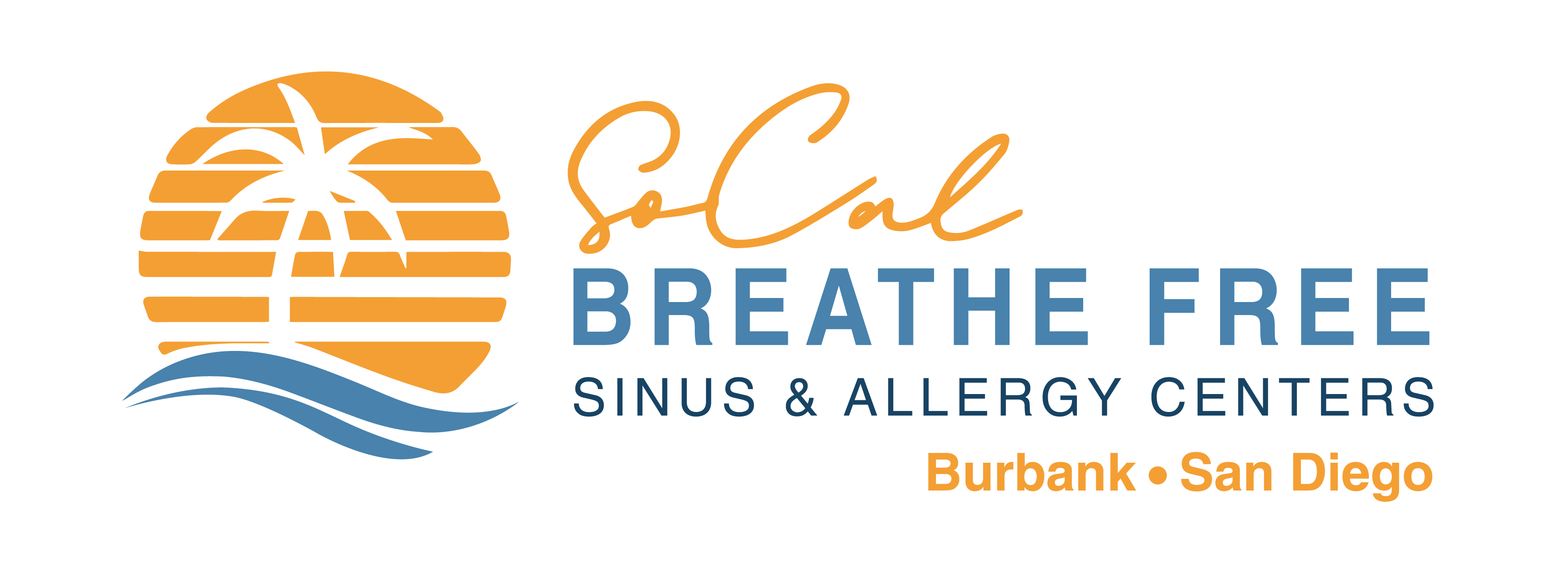Fungal Sinusitis
Fungal Sinusitis Treatment in Burbank, CA
Fungal sinusitis is a complex condition caused by fungal infections or allergic reactions in the sinuses. Though not as common as bacterial sinusitis, fungal sinusitis can range in severity from mild to life-threatening, depending on the type and individual circumstances. Understanding the different types, their causes, symptoms, and treatment options is essential for effective management. SoCal Breathe Free Sinus & Allergy Centers specializes in diagnosing and treating fungal sinusitis in Burbank, CA. Contact us to learn more.
Types of Fungal Sinusitis

Fungal sinusitis presents in several forms, which are classified into the two main categories of non-invasive and invasive. The most common forms of non-invasive fungal sinusitis include:
- Allergic Fungal Rhinosinusitis (AFRS) – A common form found in individuals with a history of allergic reactions. Caused by a hypersensitive immune response to fungal spores, it often results in chronic inflammation and nasal polyps.
- Mycetoma (Fungal Ball) – A localized infection where fungal debris forms a dense ball in the sinus cavity. This form does not invade the tissue but can cause symptoms like nasal discharge and obstruction.
The most common forms of invasive fungal sinusitis include:
- Acute Invasive Fungal Sinusitis – A rare but severe condition that progresses rapidly, often in immunocompromised individuals. Fungi invade the sinus tissues, leading to life-threatening complications if untreated. While rare, some forms of fungal sinusitis require hospital-based care. We evaluate and treat many non-invasive or allergic types in our clinic.
- Chronic Indolent Fungal Sinusitis – Commonly found in subtropical climates, this form progresses slowly over weeks or months, causing inflammation and gradual tissue damage.

Causes of Fungal Sinusitis
Fungal sinusitis occurs when the body’s immune response is either compromised or overly sensitive to fungal spores found in the environment. Factors that increase susceptibility to fungal sinusitis include:
- Compromised immune systems
- Chronic allergic conditions that lead to inflammation of nasal and sinus tissues
- Long-term use of antibiotics or corticosteroids which disrupt the immune balance
- Exposure to humid or moldy environments where fungal spores thrive
Symptoms of Fungal Sinusitis
Symptoms can vary widely based on the type of fungal sinusitis. The most common fungal sinusitis symptoms include:
- Nasal congestion and blockage
- Thick nasal discharge
- Facial pain or pressure, particularly around the sinuses
- Headache or eye pain
- Loss of sense of smell
- Persistent fever
- Swelling or redness around the eyes or cheeks
How to Treat Fungal Sinusitis
The treatment of fungal sinusitis depends on the specific type and severity of the condition. It’s essential to note treatment results may vary. The most common treatments for fungal sinusitis include:
- Antifungal Drugs – Antifungal drugs are used for invasive types and can be administered orally or intravenously.
- Corticosteroids – Corticosteroids may help reduce inflammation in cases like AFRS.
- Saline Irrigation – Saline irrigation involves using a saline solution to flush the sinuses and clear out mucus and irritants.
- Comprehensive Care – Individuals with invasive fungal sinusitis require multidisciplinary care, including infectious disease specialists and ENT surgeons.
- Lifestyle Modifications – Avoiding moldy or damp environments can minimize exposure to fungal spores.
- Sinus Surgery – Surgery may also be performed to drain the sinuses and improve airflow in AFRS or invasive cases.
- Endoscopic Sinus Surgery – Endoscopic Sinus Surgery is often necessary to remove fungal debris in cases of mycetoma or chronic types.
- Allergy Management – Patients with allergic fungal rhinosinusitis often benefit from ongoing allergy management, including immunotherapy or nasal sprays.
Why Choose Us for Fungal Sinusitis Treatment?
SoCal Breathe Free Sinus & Allergy Centers provide high-quality, friendly care for sinus and allergy relief. If you’re experiencing persistent sinus symptoms, our experienced physicians can help determine the underlying cause and discuss effective treatment options. We can perform a sinus assessment to determine the cause and severity of your sinus issues. Trust us to take care of you.
Contact Us to Schedule Your Consultation Today
SoCal Breathe Free Sinus & Allergy Centers uses innovative diagnostic methods to meticulously assess your situation to pinpoint an accurate diagnosis and craft individualized treatment strategies. Our team is committed to developing personalized plans that may help improve your sinus-related symptoms. Reach out to us today to arrange a consultation and embark on your journey to enhanced health.
Disclaimer: Individual results may vary. Treatment effectiveness depends on a patient’s specific medical history and diagnosis. No guarantees of symptom relief or outcome are implied. Always consult with a qualified healthcare provider to determine the best treatment plan for your needs.
